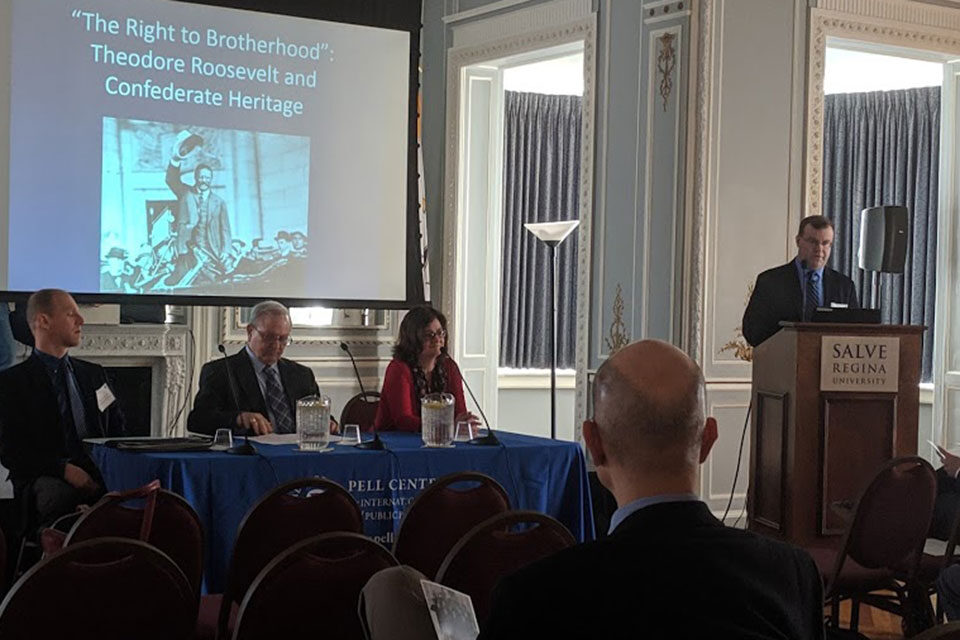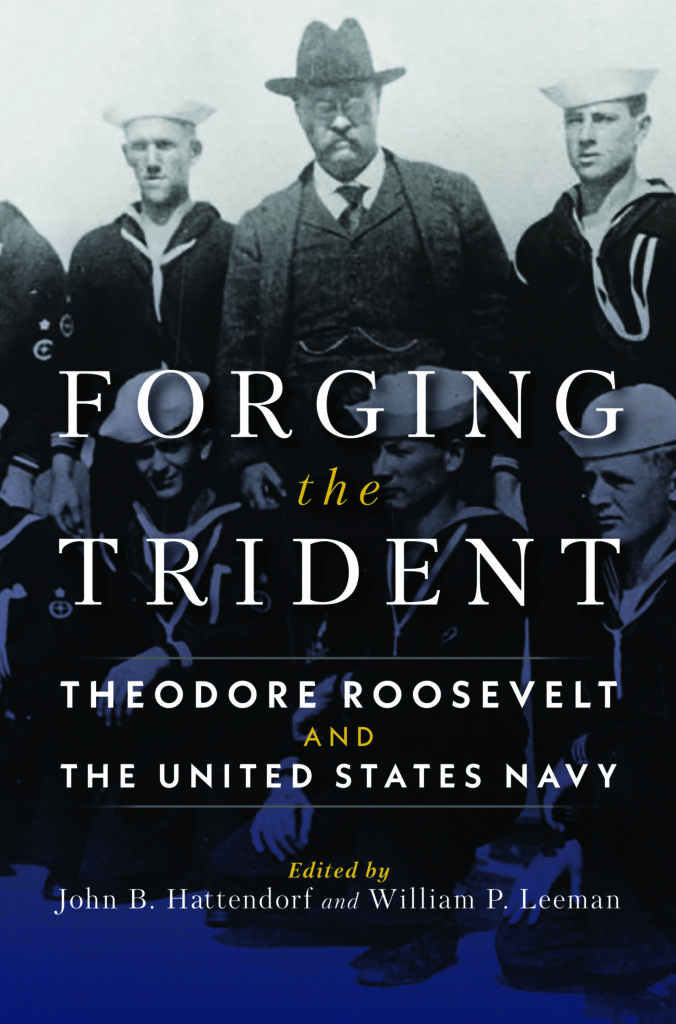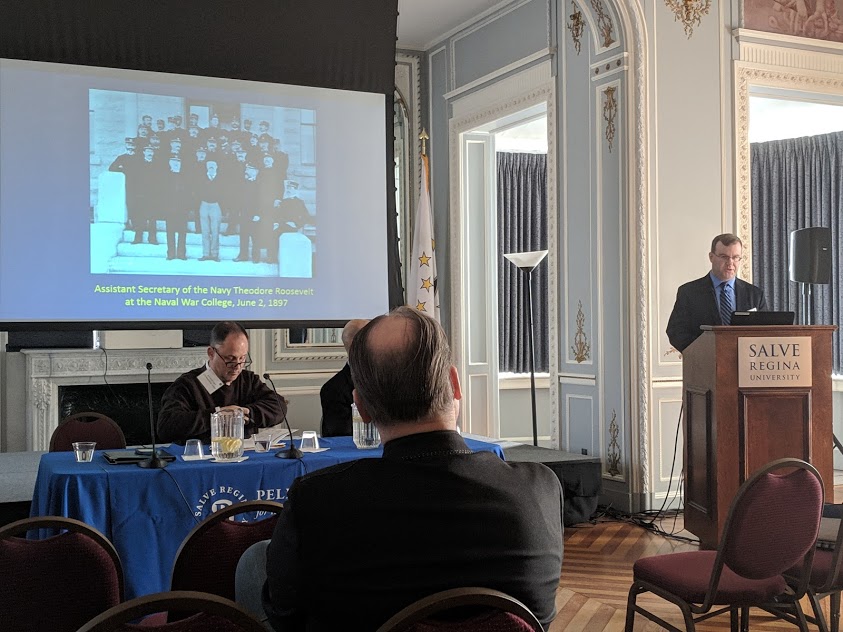Dr. Leeman publishes anthology on Theodore Roosevelt and his lifelong relationship with the navy

Dr. William Leeman, associate professor of history at Salve Regina and director of the University’s Pell Honors Program, has published an anthology called “Forging the Trident: Theodore Roosevelt and the United States Navy,” which was co-edited with Dr. John Hattendorf of the United States Naval War College.
Within the pages of “Forging the Trident,” which was published by the Naval Institute Press, readers will encounter a side of Theodore Roosevelt’s life and legacy that is often neglected.
A history of Roosevelt’s passion for the navy
This collection of essays highlights various aspects of Theodore Roosevelt’s lifelong relationship with the U.S. Navy, with each essay written by a leading American naval historian.
“Roosevelt’s fascination with and interest in the navy spanned his entire life, beginning during his childhood,” described Dr. Leeman. “When he was a boy, he would listen to the exciting sea adventures of his maternal uncles, both of whom were Confederate naval officers during the Civil War.”
According to Dr. Leeman, Roosevelt first studied naval history as a student at Harvard University, where he produced a major research project on the naval operations of the War of 1812. That project soon after grew into Roosevelt’s first book, ‘The Naval War of 1812,’ which was published in 1882. Roosevelt was only 23 years old.
“What began as a childhood interest and undergraduate research project ultimately transformed into a pathbreaking leadership role in naval affairs,” said Dr. Leeman. “Roosevelt became assistant secretary of the navy from 1897-1898, and finally president from 1901-1909.”
Theodore Roosevelt played a crucial role in developing the U.S. Navy into a world power in the early 20th century, according to Dr. Leeman. After all, it was Roosevelt who built the navy that would go on to victory during World War II and dominate the 20th century.

Dr. Leeman’s new anthology, which he co-edited, offers a new look into Roosevelt through the lens of his passion for the U.S. Navy.
“He did all this by embracing modern technology, by enacting personnel reforms within the Navy, by improving naval officer education and training, and by educating the American public about the importance of naval power and being active in world affairs,” explained Dr. Leeman. “Roosevelt also demonstrated the importance of studying history as a way to learn lessons that can inform contemporary policy debates.”
Salve conference brings together book’s authors
From the beginning, this project was a joint effort between Salve Regina and the Naval War College.
“The publication of Forging the Trident was the result not only of Dr. Leeman’s expertise in U.S. military and presidential history but also a successful partnership with co-editor and leading naval historian John Hattendorf, institutional collaboration between Salve Regina and the Naval War College, and the generous support of the Pell Center for International Relations and Public Policy and the John E. McGinty Fund in History,” remarked Dr. Timothy Neary, professor and chairperson in the Department of History.
In January of 2019, Salve Regina hosted a conference at the Young Building related to the book called “Forging the Trident: Theodore Roosevelt and the United States Navy.” During the conference, each of the contributors to the book presented a paper that was a condensed version of the essay that would later be published in the book. The conference was attended by faculty and students from both Salve Regina and the Naval War College.

Dr. Leeman presents at the “Forging the Trident” conference in 2019, held at Salve Regina. This conference was the catalyst for the book.
In addition to co-editing the whole volume, Dr. Leeman wrote the essay entitled “From Knowledge, Sea Power: Theodore Roosevelt, Naval Education, and the New Navy.” He is also the author of “The Long Road to Annapolis: The Founding of the Naval Academy and the Emerging American Republic,” which was published in 2010. He earned his Ph.D. in history from Boston University and previously taught at the United States Military Academy at West Point.
“Salve students and the reputation of the University benefit from Bill’s excellence as a scholar and teacher,” concluded Dr. Neary.


